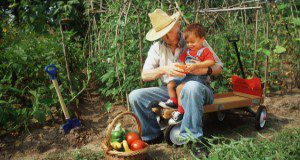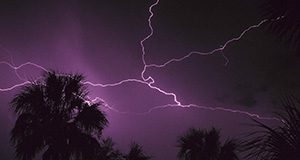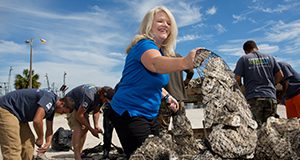In the southeastern United States, many agricultural, vulnerable, and rural communities (AVRCs) must cope with natural disasters regularly. These natural disasters not only harm communities, crops, and livelihoods, but also can negatively impact the mental health of affected individuals, including those living in AVRCs. The purposes of this new 3-page article are to (1) provide tips on identifying specific individuals who could qualify as community leaders and (2) provide details on how partnering with community leaders can be beneficial for mental health communication and outreach. Written by Lisa Lundy, Jacqueline Aenlle, Ricky Telg, Tracy Irani, Angie Lindsey, Ashley Mcleod-Morin, Michaela Kandzer, and Phillip Stokes, and published by the UF/IFAS Department of Agricultural Education and Communication.
https://edis.ifas.ufl.edu/wc383
Tag: Disasters — Stress and Coping
Strategies to Increase Personal Resilience in Disaster Response Efforts
This 3-page publication highlights strategies to help Extension professionals increase their personal resilience in disaster response efforts. Written by Amanda D. Ali, Angela Lindsey, Amy Harder, Lisa Lundy, and T. Grady Roberts, and published by the UF/IFAS Department of Agricultural Education and Communication, May 2020.
https://edis.ifas.ufl.edu/wc360
Developing and Strengthening Networks to Promote Resilience After Disasters
The HGHC series includes thirteen publications that focus on the work of the community outreach and dissemination team, including community engagement, outreach, and research result dissemination. This 3-page document focuses on developing and strengthening networks before they are challenged to promote resilience in and after a disaster. Written by Angela B. Lindsey, Samantha Goldenberg, and Cassie Wandersee, and published by the UF/IFAS Department of Family, Youth and Community Sciences, April 2018.
http://edis.ifas.ufl.edu/fy1477
Impacts of Technological Disasters (FCS9265/FY1230)
Technological disasters such as the Deepwater Horizon/BP oil spill can be stressful. This publication reports on the impacts of technological disasters and offers some guidelines for families that are dealing with stress related to the oil spill. This 4-page fact sheet was written by Megan Donovan, Suzanna Smith, Heidi Radunovich, and Michael Gutter , and published by the UF Department of Family Youth and Community Sciences, May 2011.
http://edis.ifas.ufl.edu/fy1230


